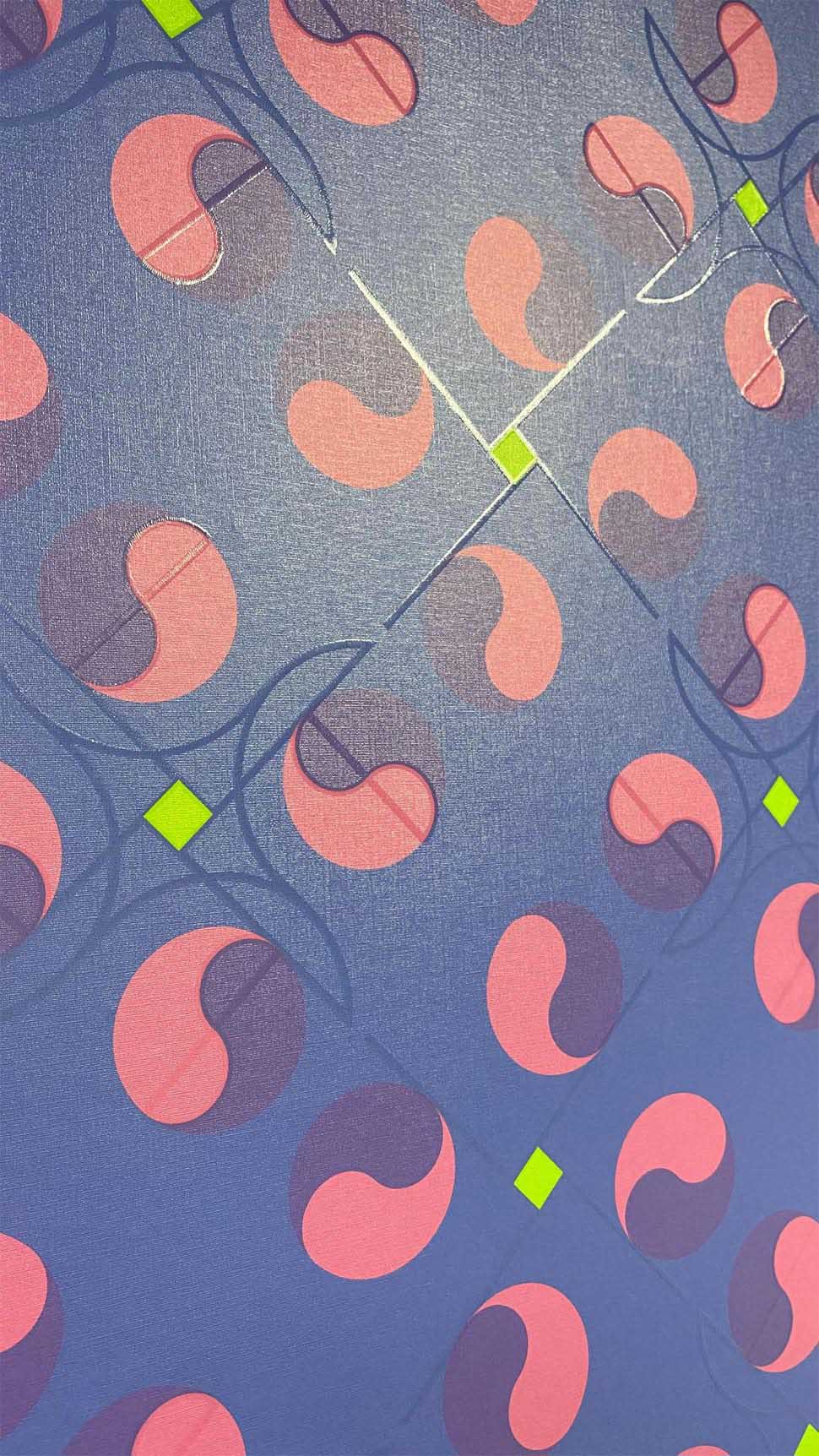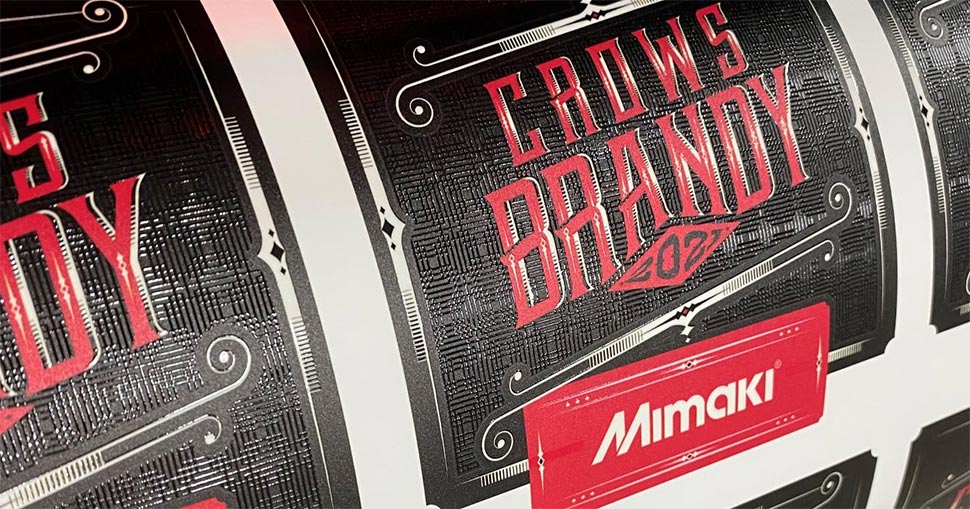Like its lamination cousin, varnishing was previously seen as a process that was only really useful for adding an extra layer of protection to a piece of printed work without impacting the image underneath.
However, fast-forward to the modern market and while varnish does indeed play a critical role in protecting printed work from damage, it is now regarded as a tool that can help add a whole new dimension to applications – particularly those in the wide-format print sector.
At Drytac, we have seen clear gloss varnish being used much more effectively in wide-format print, with customers coming up with a range of innovative ways to add that extra bit of sparkle to applications with this tried and highly trusted technique.
Perhaps one of the best examples of this innovation at work is with wallcoverings. Often in this area, applications can be rather flat and stagnant, not offering a great deal to passers-by or to customers inside venues such as restaurants or cafés. However, the simple step of adding a clear varnish can add a fresh look to the piece, making it much more likely to achieve its primary goal of attracting the attention of consumers.
Drytac customers working with ReTac Smooth 150 polymeric PVC film or ReTac Textures embossed film can add a layer of varnish to their printed work, allowing them to bring greater depth to the texture of the printed piece or even insert additional pattern designs to the application.
Evidence of innovation with varnish goes much further and can also be seen when working with both stickers and decals. A clear varnish can add a tactile finish to a normally flat decal, thus shining a new light on the application and helping it come to life in an eye-catching way.
Further still, varnish can play a vital role in applications where Braille is required. You can add a layer of clear varnish to media with ADA/UEB criteria, such as Braille signage environments, which could in turn open doors to new work.
Aside from the obvious benefits of adding extra value for customers, there is also a point to be made in terms of costs. By using clear varnish, you can reduce the amount of waste ink by turning it into more eye-catching prints that can boost profitability. Indeed, we have seen a trend where customers are now starting to use the clear varnish – that had been previously under-used – and adding an extra dimension to flat, sometimes bland, print jobs.
However, while all the above may be true, it is important to remember that clear varnish is only an option when printing with UV technology.
Luckily for us, there are all sorts of UV printing machines on the market today, and plenty of high-quality inks to accompany them, so varnishing, and its benefits, is an option available to print service providers of all shapes and sizes.
Authored by Gareth Newman, Academy Manager at Drytac
For further information on Drytac's products and services, click here






